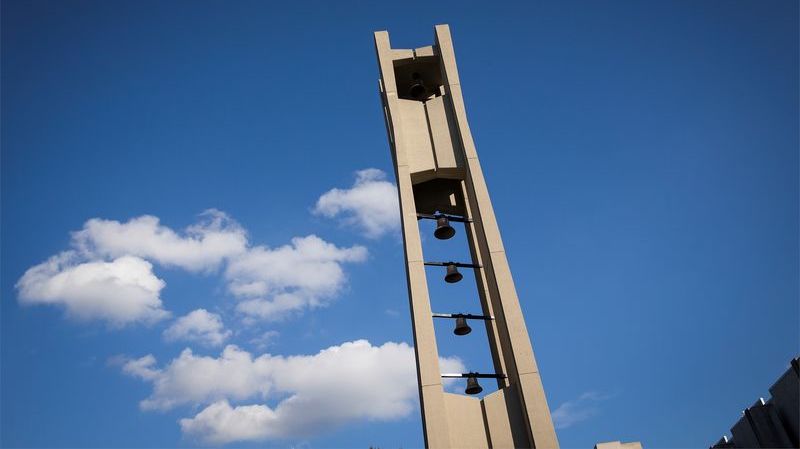
On July 1, Temple University implemented a new tobacco-free policy based on recommendations from Dean Laura A. Siminoff and the Presidential Smokefree Campus Task Force. In celebration of this change, we’ve reprinted the story, with updates, on the task force’s work from the 2018 edition of our Year in Review.
By April 2018, more than 2,100 college campuses across the United States were completely smoke free. Thanks to a campuswide task force commissioned by Temple President Richard M. Englert and led by the College of Public Health, Temple University will be joining the trend.
In September 2017, the College of Public Health was awarded a grant from the American Cancer Society to join the Tobacco-Free Campus Generation Initiative. The grant provides support to accelerate and expand the adoption and implementation of smoke- and tobacco-free policies on college and university campuses. While other institutions have successfully gone smoke free, researchers at the College of Public Health and across Temple are looking to free the campus of tobacco in all of its forms, including cigarettes, cigars, cigarillos, chewing tobacco and e-cigarettes.
The Smoke-free Campus Task Force is an example of the college’s push to improve health at the hyperlocal level, focusing on where students live, learn and work. “Creating a tobacco-free campus environment is important for several reasons,” said Jennifer Ibrahim, associate dean for academic affairs, associate professor of health administration and policy, and recipient of the grant. “We know that 18- to 24-year-olds have the highest rates of smoking, so we are trying to create an environment to help prevent students from becoming addicted. Additionally, exposure to secondhand smoke is bad for all members of our Temple community. Finally, tobacco-related litter is all over campus and streets at the edge of campus. There is an environmental impact as chemicals leach into the soil and a cost associated with cleaning it up.”
Last fall, an interdisciplinary group of faculty, students and staff from across Temple University, led by Laura A. Siminoff, dean of the College of Public Health and Laura H. Carnell Professor of Public Health, surveyed students, faculty and staff on their behaviors and perceptions about smoking on campus. They asked students and employees about their awareness of current campus policies; if, where and how they smoked; and the degree to which they felt that smoking was a problem on campus.
Although 63.5 percent of student respondents reported not using tobacco, 43 percent said they were exposed to secondhand smoke often; of employees, 65.5 percent reported not using tobacco, and 65.7 percent reported secondhand smoke exposure. Among both groups, more than 80 percent agreed that this exposure was bad for their health. A majority of both students and staff reported that they were aware of the campus smoking policy and that they adhered to it.
The task force also mapped the smoking hot spots on campus and shared observations about smoking behaviors, in addition to perceptions. According to current policy, smoking is only allowed at a minimum of 25 feet from the entrance of a building. At least half of the individuals observed smoking, however, were within that range, suggesting that compliance with the current policy is not as high as reported in the survey.
Changing tobacco policies in an urban university like Temple poses challenges that other universities may not face. Since the main campus lies on public streets in the middle of a city, it’s difficult to place restrictions in public areas. But the area also offers resources that Temple can use to craft a policy that works. Other Philadelphia universities already have smoke-free policies, and the task force communicated with officials at the institutions about how they implemented their policies. The Philadelphia Department of Public Health has also provided ongoing support and resources during the development of the report.
The task force submitted a number of recommendations to campus leadership. They called for adoption of a comprehensive tobacco-free, clean air policy for the entire university and the sidewalks or walkways on campus borders. They recommended the creation of an educational campaign to target campus community members and those visiting Temple, as well as an update to the employee rules and the student code to reflect the updated policy. Other suggestions include removing all ashtray receptacles and prohibiting the sale of tobacco on campus, including in privately owned retail stores. The task force stressed the importance of offering smoking cessation support alongside prohibiting tobacco use.
In April 2019, President Englert announced that Temple adopt a new tobacco-free policy effective July 1. In addition to prohibiting smoking and tobacco products (including e-cigarettes and vapes) from buildings, parking lots, and public spaces in and near campus, the new policy promotes resources to help students, faculty and staff to quit using cigarettes or tobacco.
“It’s not a matter of punishment,” said Ibrahim. “We’re trying to prevent people from starting to smoke and offering support for individuals who are addicted to tobacco. The intent of the policy change is to create a healthier environment for our students, staff and faculty, as well as our North Philadelphia neighbors.”
